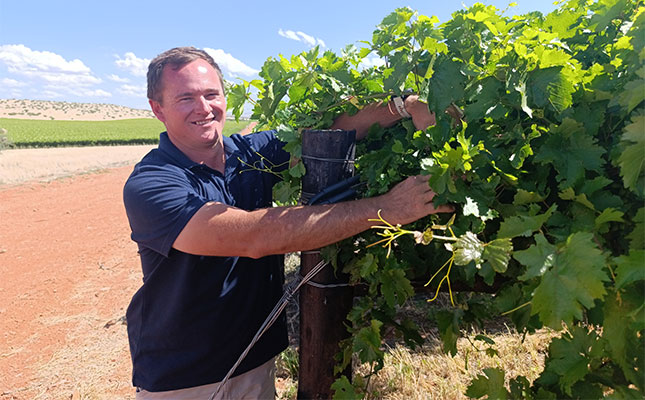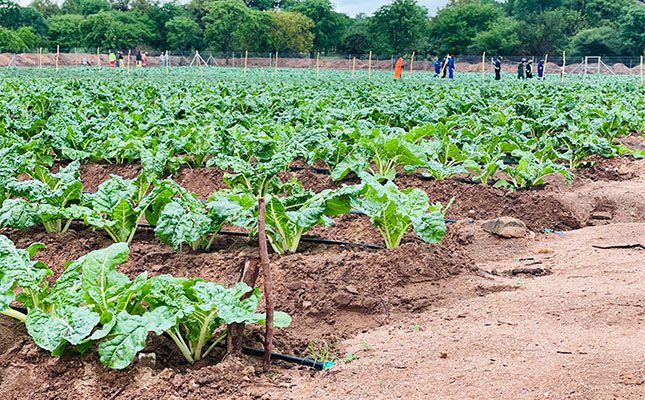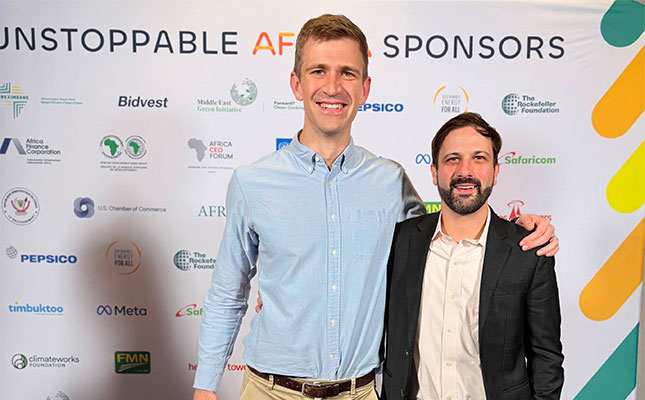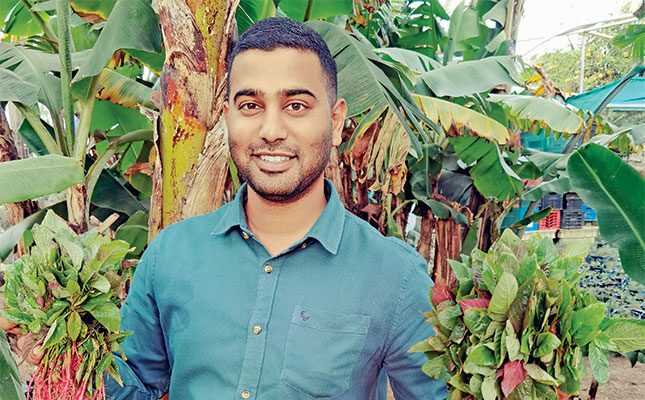
In subtropical Upper Tongaat, north of Durban in KwaZulu-Natal, 32-year-old Seniren Naidoo has transformed his family’s farming tradition into a thriving, sustainable agricultural venture built on innovation and indigenous heritage.
Naidoo has spent the past 12 years nurturing more than just crops across his 22ha farm; he has cultivated a vision for sustainable agriculture and food security that reflects both a deep respect for the past and an ambitious eye on the future.
From the green leaves of amaranthus and moringa to the aroma of mint and thyme, his farm is a sensory journey through a range of indigenous South African vegetables and niche exotic crops.
“I wanted to approach farming by looking at crops that people want and are used to but aren’t readily available. That’s where the idea of growing indigenous vegetables like imfino [amaranthus], gourds and pigeon peas came from,” he says.
Numbers and nature
Naidoo adds that, although his hands are now deeply embedded in the soil, his academic background is in finance. He holds a BCom degree in accounting, with postgraduate qualifications in advanced taxation and advanced financial planning. This might seem an unlikely path for a farmer, but for Naidoo, the transition was intentional and strategic.
“I’ve always been in farming. I transitioned to finance to understand business management principles, financial planning and financial management that could be applied to running a farm. Agriculture has high operating costs, and without sound financial management, it’s difficult to sustain,” he explains.
His time in the finance world also exposed him to various business models and management strategies, which he now applies practically on the farm.
“Working with businesses allowed me to enhance both theoretical and practical financial knowledge. That exposure helped build the foundation for my agricultural business today,” he says.
Learning the land
Naidoo says that farming was never a distant concept for him. His father, a seasoned farmer, taught him the basics, from planting schedules and fertilisation to identifying pests and managing crop diseases. However, it wasn’t easy.
“I didn’t study agriculture, so the early days were full of trial and error. I had bold ideas, but I learnt quickly that farming isn’t a one-day event; it takes months and years of planning. Implementation has to be phased,” he explains.
Armed with ancestral wisdom and modern business acumen, Naidoo now grows a diverse mix of crops, including luffa, bitter gourd, calabash, chillies, eggplant, spring onion, radish, spinach, rosemary and a variety of beans, most of which are climate and season dependent.
“Some crops we grow all year round to maintain a steady cash flow. Others are cultivated depending on market pricing, climate conditions, and water availability,” he says.

Against the odds
Naidoo says that farming near the KwaZulu-Natal coast brings its own challenges. High humidity, unpredictable weather and heavy rainfall create an environment ripe for plant diseases and pest infestations.
For him, navigating these challenges requires vigilance and creativity.
“Some of our crops don’t have formal spray programmes or pest-control guidelines because they’re not commonly grown. We’ve had to figure things out ourselves,” he says.
Soil health is another area of meticulous focus.
“Soil management is top priority. What you put into the soil determines your plant health and yield. We try to minimise erosion, use organic manure and maintain crop cover to protect and enrich the soil,” he says.
Naidoo adds that water conservation plays a major role: “We irrigate in the early mornings and late afternoons to optimise water retention. That helps us save on costs and ensures the crops get the right amount of moisture.”
He is especially conscious of maintaining the ecological balance on the farm, particularly when it comes to pollination.
“As vegetable farmers, 90% of our crops require open pollination. We rely heavily
on bees and beneficial insects, so we use minimally invasive pesticides to protect them,” he explains.
Reclaiming indigenous crops
One of Naidoo’s most innovative moves has been embracing indigenous crops – plants that have been cultivated for generations but are underrepresented in commercial agriculture. These include amaranthus, pigeon peas and calabash.
“Indigenous crops are adapted to local conditions. They can handle harsh weather and are easy to plant, often leading to higher yields. Plus, they play a huge role in enhancing food security,” he says.
He’s also excited about the growing interest in agro-processing.
“Across Africa, companies are testing ways to turn these crops into value-added products, grains, dehydrated herbs and more, and that’s where I’d like to venture next,” he says.
Naidoo says it has been a challenge, introducing these indigenous crops to modern markets.
“People aren’t always open to change. So, we introduce them in small quantities and let buyers test them. Once consumers know how to prepare and enjoy them, word of mouth does the rest,” he says.
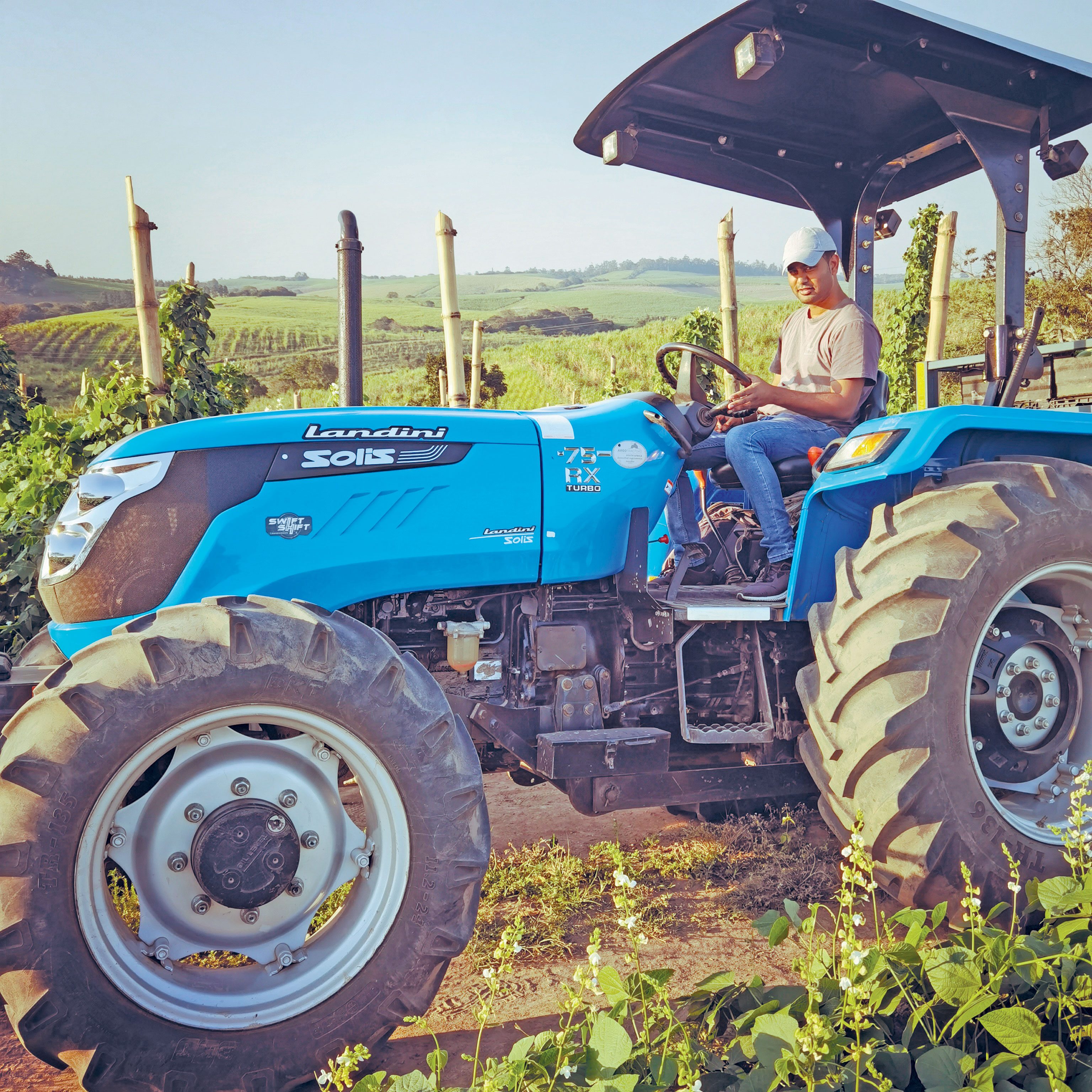
Niche vegetables
Living in a multicultural region like KwaZulu-Natal, Naidoo recognised the demand for exotic vegetables linked to different cultural cuisines. This led him to diversify further into crops like bitter gourd, luffa and different types of eggplant and chilli staples in many Asian and African dishes.
“Each culture has its unique palate and dietary needs. We try to cater to those,” he says.
He adds that, thanks to his loyal niche market and positive word of mouth, he’s been able to build a steady base of buyers without major marketing hurdles.
“I haven’t experienced many challenges selling these [niche] crops. In fact, being one of the few suppliers gives me an edge,” he says.
Giving back and building networks
Beyond business, Naidoo’s farm plays a social role.
“We often plant more than we need so we can donate surplus produce to local communities or feeding schemes. It’s important to us that we give back,” he says.
He has also collaborated with several institutions and stakeholders across the province.
“We’ve worked with universities, smallholder farmers and even the Department of Agriculture. These partnerships help us stay informed, innovate and contribute to wider agricultural development,” he says.
Innovation and legacy
Naidoo isn’t slowing down any time soon. His other plans include launching a community-based farming venture that empowers other farmers through shared resources and knowledge.
He is also exploring the integration of artificial intelligence (AI) and smart farming technologies to boost efficiency and crop yields.
“I love testing new tools and tech to see how they can improve production. AI is definitely something I’m interested in applying to farm management,” he says.
When asked what advice he would give to aspiring farmers, his response is practical and heartfelt: “Take the shot. Be focused. Plan way ahead and write everything down. Farming is tough, but very rewarding if you have a passion for it. Never stop learning.”
For Naidoo, farming isn’t just a career; it’s a commitment to the land, heritage and future generations.
“I want to leave a legacy of perseverance, something that inspires others to continue with agriculture and help it evolve into something that feeds generations to come,” he adds.
For more information email Seniren Naidoo at [email protected].
Get trusted farming news from Farmers Weekly in Google Top Stories.
➕ Add Farmers Weekly to Google ✔ Takes 10 seconds · ✔ Remove anytime
